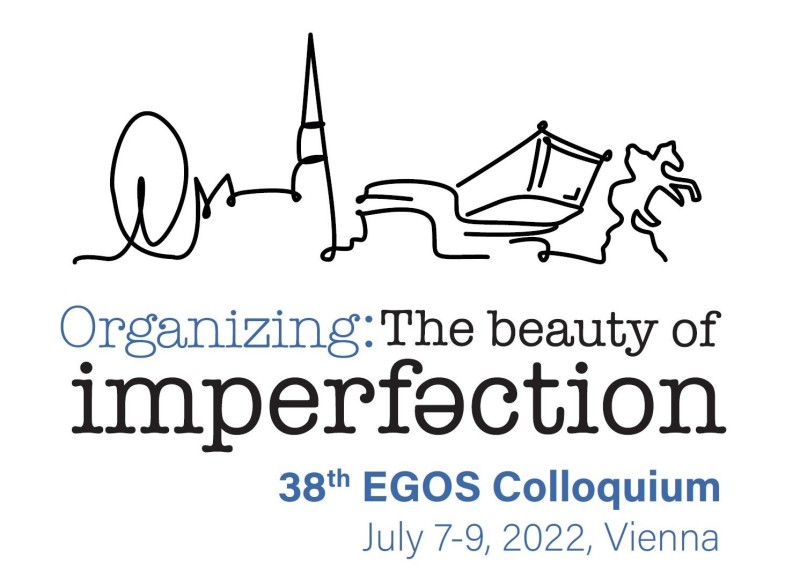Sub-theme 34: Ignorance at Work: How Organizations Strive Not to Know
Call for Papers
Organizations are marked by ignorance as much as by knowledge. In our daily lives, we constantly encounter situations in
which we do not draw on available information (March, 1978). Such practices of ignoring the obvious have been conceptualised
as stupidity (Alvesson & Spicer, 2012), blindness (Baker & Kelan, 2018; DeKlerk, 2017; Fotaki & Hyde, 2013), inefficiency
(Sydow et al., 2009), inertia (Tripsas & Gavetti, 2000), or generally incompetence. Yet, as Mary Douglas has shown, excluding
something or someone from one’s reality by ignoring it, is often a way of dealing with anomalies or threats that have the
capacity to ‘pollute’ and thereby destabilize an existing order (Douglas, 1967). Not surprisingly in organizations we constantly
stumble upon instances of looking the other way, diverting attention, denying or actively avoiding uncomfortable matters and
alternative understandings. Organizing practices require us to avoid talking about the elephant in the room and ‘knowing what
not to know’ (Taussig, 1998).
Ignoring what is obvious is crucial to maintain and protect the certainty,
morality, confidence, and propriety that ensure organizational functioning (Douglas, 1967). For example, scientists intentionally
blind themselves in experimental settings to reduce their own biases (Polit et al., 2011). Other studies show organizations
develop forms of ‘inattentiveness’ to information that questions their ideas, practices or moral valuations (Knudsen, 2011).
However, while ignoring might be necessary for organizing, strategic ignorance can also be a tactic to mobilize and exploit
unknowns to avoid liability for earlier actions (McGoey, 2012). We see this in ongoing corporate scandals such as whitewashing
in the financial sector, as well as governments and corporations inability to act on societal challenges such as climate change
and global inequality. But, even ‘legitimate’ acts of ignoring may have many unintended and perhaps unjust consequences. The
unspoken presence of what is obvious can come back to haunt and disturb organizing processes in unexpected ways, causing discomfort,
confusion and ambiguity (Pors, 2017; Pors et al., 2019). Finally, like whistleblowers who publicly reveal what many of us
know already, unmasking a public secret is a political act to point to certain injustices of a given situation (Kenny, 2019;
Radcliffe, 2008).
In this sub-theme we explore ignorance not as the opposite of knowledge, but as a practice
of ignoring that is productive and unproductive in its own right. It can be a standardized and institutional practice, but
it can also be a more informal and intangible process that lies under the radar of official or managerial control. These practices
are more than deliberate action. They constitute collective, embodied and sensuous acts of unseeing (Otto et al., 2018; Zerubavel,
2008) that are embedded in complex socio-political environments (Proctor, 2008: 9; Smithson, 1989; Stel, 2016).
Our aim in this sub-theme is to explore the status, practice, context and consequence of ignoring uncomfortable matters
as an organizational practice. We are interested in the multiple levels that make ignoring possible, including affects, cultural
norms and the political economy of organizations. We aim to collect and connect conceptual and empirical studies of collective
ignoring that show that although ignorance is a ubiquitous part of organisational life, it takes work and effort to produce
and sustain it. We also strive to bring out the different political consequences of organized ignorance, particularly when
considering that organisations are not islands, but connected to societies and environments.
Papers may address
issues related (but not limited) to the following topics:
Affects and emotions: ignoring as an embodied and sensuous activity
Methodology: how to study the imperceptibility of ignorance
Temporal aspects of ignoring: Ignoring the past, gendered histories; post-colonial histories
Ignorance as paralysis: (not) facing obvious challenges such as climate change, social injustice
Strategic ignorance in governmental and corporate scandals
Willful ignorance in leadership; experimentation; creative processes; decision making, failure and entrepreneurial processes
Speaking out as acts of resistance and emancipation
Ignorance as a practice of protecting secrets
References
- Baker, D.T., & Kelan, E.K. (2019): “Splitting and blaming: The psychic life of neoliberal executive women.” Human Relations, 72 (1), 69–97.
- Bakken, T., & Wiik, E. (2018): “Ignorance and organization studies.” Organization Studies, 39 (8), 1109–1120.
- De Klerk, J.J. (2017): “Nobody is as blind as those who cannot bear to see: Psychoanalytic perspectives on the management of emotions and moral blindness.” Journal of Business Ethics, 141 (4), 745–761.
- Douglas, M. (1967): Purity and Danger: An Analysis of Concepts of Pollution and Taboo. New York: Routledge.
- Fotaki, M., & Hyde, P. (2015): “Organizational blind spots: Splitting, blame and idealization in the national health service.” Human Relations, 68 (3), 441–462.
- Kenny, K. (2018): “Censored: Whistleblowers and impossible speech.” Human Relations, 71, 1025–1048.
- Knudsen, M. (2011): “Forms of inattentiveness: The production of blindness in the development of a technology for the observation of quality in health services.” Organization Studies, 32 (7), 963–989.
- McGoey, L. (2012): “The Logic of Strategic Ignorance.” The British Journal of Sociology, 63 (3), 533–576.
- Otto, B., Pors, J.G., & Johnsen, R. (2019): “Hidden in full view: The organization of public secrecy in Miéville’s The City and the City.” Culture and Organization, 25 (2), 91–103.
- Pors, J.G. (2016): “It sends a cold shiver down my spine: Ghostly interruptions to strategy implementation.” Organization Studies, 37 (11), 1641–1659.
- Proctor, R.N. (2008): “Agnotology: A missing term to describe the cultural production of ignorance (and its study).” In: R.N. Proctor & L. Schiebinger (eds.): Agnotology. The Making and Unmaking of Ignorance. Stanford: Stanford University Press, 1–28.
- Roberts, J. (2013): “Organizational ignorance: Towards a managerial perspective on the unknown.” Management Learning, 44 (3), 215–236.
- Smithson, M. (1989): Ignorance and Uncertainty: Emerging Paradigms. New York: Springer.
- Taussig, M.T. (1999): Defacement: Public Secrecy and the Labor of the Negative. Stanford: Stanford University Press.
- Zerubavel, E. (2008): The Elephant in the Room: Silence and Denial in Everyday Life. New York: Oxford University Press.


